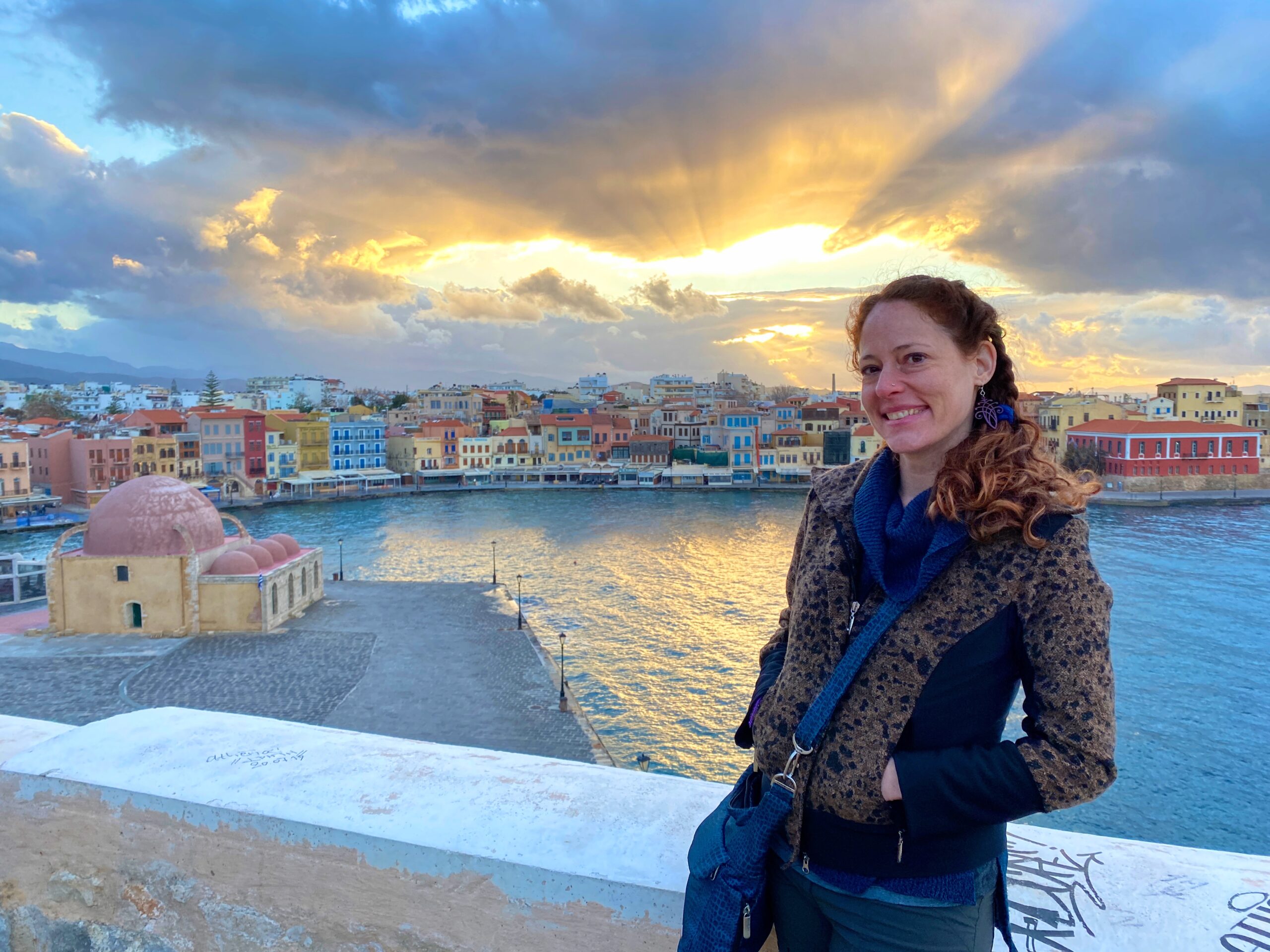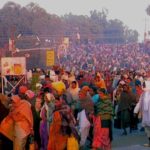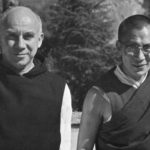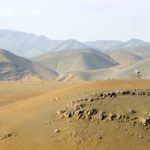Nora Dunn (aka The Professional Hobo) is one of the original digital nomads and lifestyle travel bloggers, having started her full-time travel lifestyle in 2006. Specializing in slow travel, she has lived in and traveled through over 70 countries while working remotely. She combines her expertise as a former Certified Financial Planner with her lifestyle travel experience, to teach people how to travel long-term in a financially sustainable way.
Nora’s travel experiences range from sublime to absurd to downright terrifying. She survived three natural disasters and got three tropical diseases, was robbed twice, and had one near-fatal accident. On the brighter side, she accidentally started an international NGO, had a kangaroo fall in love with her and follow her around for 6 months, apprenticed with a shaman in Peru for two years, and rode 25,000 kilometers of trains in thirty days straight, from Lisbon to Saigon.
Nora now gives people confidence to travel long-term by helping them set everything up in the best possible way for them – from finances to career to logistics and beyond. She does this with instructional and inspirational content on her website, YouTube channel, personal consulting services, books, speaking, and more.
How did you get started traveling?
In 2006 as I was turning 30, I sold everything I owned in Canada (including a busy financial planning practice) to embrace my lifelong dream of “cracking the code” of cultures worldwide. I wanted to break bread around dinner tables around the world, and in so doing gain an understanding of how people live, shop, cook, rest, and play. It was something I couldn’t achieve with traditional vacations, and I also couldn’t bear to await a traditional retirement for such pursuits which might not be as desirable or feasible at that age.
I didn’t actually know how this major move of selling the lot to travel would play out, and I was open to any outcome (including the possibility that I just needed to get something out of my system and would return to Toronto months later). But 17 years later, I am still a career traveler and I’m considered an OG digital nomad and travel blogger.
How did you get started writing?
Lucky for me, in addition to a lifelong love of travel, I also had a lifelong penchant for writing. I’ve always found a way to channel my creativity through writing since early childhood. Even as a financial planner, I spent countless hours writing financial plans riddled with personalized prose for my clients.
So when I decided to travel full-time, I created a travel blog to chronicle my trip and allow family and friends to follow along as they wished. In 2006 that’s all travel blogs were (glorified online journals), and mine was no exception.
Since blogs weren’t money-makers, I had separate career-focused aspirations with my writing. With terms like “remote work,” “location independent,” and “digital nomad” yet to be invented, it was something of a revelation to me when I realized that with just a laptop and internet connection, I could earn a living as a freelance writer from anywhere in the world.
Thus I pursued freelance writing as a career. I knew it would take a long time to build up a portfolio and sustainable income as a writer, and I had that luxury, since the sale of my financial planning practice kicked out a small income for my first two years abroad. My goal was to learn to live and travel full-time on the income I earned through the sale of my practice (which was about $2,000 month), and to replace that income, when it ran out, through writing.
I’m pleased to report that I more than succeeded on both accounts.
What do you consider your first “break” as a writer?
I quickly (and if I’m honest, somewhat accidentally) found an ingenious strategy: I parlayed my financial expertise with my travel experience to write about the finance of travel. Travel publications hired me to write about finance, and finance publications hired me to write about travel (for considerably higher pay I might add). This gave me an edge with my pitches that straight travel writers and finance writers didn’t have, and it served me well.
Being the pioneer days of blogging, there were a few online publications that paid writers a share of the ad revenue generated by their articles. I was quickly hired by two sites for regular gigs that helped me cut my teeth: Wise Bread (the top personal finance and frugal living site at the time, and one that led to my first book deal), and Vagabondish (one of the top travel webzines). In both cases I had full editorial control to write what I wanted, and I knew that the more stuff I wrote, the larger a portfolio of articles I would have that could earn me a passive income over time.
These bylines helped me land other regular and one-off freelance writing gigs too. Most of my assignments were for online publications, with a sprinkling of print gigs here and there.
The beauty of the online writing was that it continued to increase the reputation and authority of my own website and my personal brand (such as it was) as The Professional Hobo – a full-time traveler on a mission to prove that lifestyle travel is financially sustainable.
So when travel blogging started to become mainstream and people wanted to feature full-time travelers, I was one of a handful of people who were easily discoverable as such, and this compounded my online reputation and the opportunities that came knocking – which included sponsored trips, writing gigs, media interviews, and more.
The other bizarre “first break” that came to me was when I accidentally started an international NGO whilst in Thailand. It’s a saga unto itself, but the upshot was that it put my website into the international spotlight because I was using it to accept donations for the cause I was supporting.
Odd experiences like these have continued throughout my travel career and led me in the most outrageous directions that I never could have imagined or planned for.
As a traveler and fact/story gatherer, what is your biggest challenge on the road?
With almost two decades of lifestyle travel under my belt, I’m forgetting the finer details of my early travels, and I rarely took extensive notes since I doubted I’d ever go back through reams and reams of (physical or virtual) details. If I – or rather, when I – eventually sit down to write a memoir, I’ll be relying on a fallible memory to recreate past experiences, which is a shame.
In my early years of travel blogging, I didn’t think I needed a journal because my blog was my journal. But as travel blogging became an affair that could be monetized, and as I became more well-known, I started censoring myself and my experiences to be more appropriate for my readers in one way or another. And unfortunately I didn’t pick up the slack by taking notes elsewhere.
One of the things I love about Marco Polo Didn’t Go There is how Rolf features published travel stories, but with extensive footnotes that fill out the background (at times including details that had to be changed or omitted by the publications). It resonates for me because although I’m incredibly open and vulnerable in my writing, sometimes we need to tweak the written accounts of our experiences. Which brings me back to the value of journaling, which I’m still not habitual with.
The other big challenge for me as a lifestyle traveler and writer, is the precarious art of work-life balance. While the lines between travel and work are blurred with my lifestyle and career, one often comes at the expense of the other. Ironically, the travel lifestyle and travel writing are both contradictory and complementary. It does my head in sometimes.
What is your biggest challenge from a business standpoint?
As a creative first and foremost, the business and analytical side of blogging as a career wears me down. I’ve railed against SEO and other business practices since the start, and it has hurt my growth immeasurably. While I now outsource much of this work, I was late to the game and I sometimes feel I’m perpetually playing catch-up.
The pandemic also taught me how precarious my business model has been; although I have dozens of income sources (through ads, sponsors, and affiliate sales), 100% of my income has been dependent on traffic to my website. And when that traffic dries up – either through a pandemic, or an algorithm change, both of which happened in short succession in 2020 – so too does the income. Taking an 80% hit in 2020 forced me to approach my online career with increased business sensibilities.
Have you ever done other work to make ends meet?
No, but in those initial years of full-time travel I managed to save over $100k on accommodation by getting it for free. (I literally wrote the book on how to get free accommodation around the world through these experiences). This allowed me to live and travel for significantly less money than one might imagine, to have amazing culturally immersive experiences that far surpass what one might do on the “tourist trail”, and it also subsidized my writing career as I was getting it off the ground.
Although my blog can support me full-time, I still complement it with freelance writing gigs. My financial expertise continues to pay off; I’m currently enjoying my position as a writer and spokesperson for NerdWallet Canada.
What travel authors or books might you recommend and/or have influenced you?
I already mentioned Marco Polo which I adore. And like any good lifestyle traveler I read Vagabonding with great interest, and in fact back in 2009 I wrote a manuscript that never saw the light of day, called A Practical Guide to the Art of Vagabonding, which was intended to complement Vagabonding with more specific granular tips and advice. (It was a terrible manuscript; I could write a much better version now).
A travel writer whose work I’ve enjoyed is J. Maarten Troost, whose books are culturally insightful as well as incredibly funny. Any author who can make me guffaw unintentionally in public has my vote.
Anthony Bourdain also has a habit of making me simultaneously laugh and pause for thought. His book A Cook’s Tour: In Search of the Perfect Meal was an indulgence in cultural and culinary exploration, as well as a behind-the-scenes peek at filming a tv show (something of interest to me as I have worked in television and film both in front of and behind the camera).
And no train travel evangelist enthusiast like myself could list books and authors of influence without paying homage to Paul Theroux who has written countless books, many of which are about trains. He had my heart in the first few pages of The Old Patagonian Express: By Train Through the Americas. While my train adventures (or at least my recounts thereof) pale by comparison, I’ve ridden more long-distance trains than anybody I know (and almost everybody I know combined). My most recent was a circumnavigation of the United States by train, with a stranger.
What advice and/or warnings would you give to someone who is considering going into travel writing?
I am often contacted by readers who aspire to travel long-term and would like to start a travel blog to subsidize their travels. They reach out hoping for some golden tips that will earn them sponsored trips and free stays….on a trip they’re leaving for in a couple of weeks or months, and without even the inklings of a blog in place.
I guess I should be honored that I make travel blogging look so easy, but the reality is it’s not, especially with the the amount of competition that exists these days.
Regardless of the medium through which you’d like to earn a living as a travel writer (be it magazines, books, websites, etc), I have two solid recommendations:
1) Give yourself a long runway to earning an income you can live off of. It takes time to amass sufficient experience and bylines.
2) Find a competitive edge. With my financial expertise, I was able to differentiate my travel writing pitches from standard destination pieces and I ultimately built an entire personal brand around it.
What is the biggest reward of life as a travel writer?
Every once in a while, in the midst of an intense travel experience, an alternate channel of my brain opens up and the narrative of an article starts coming through. It’s like the article is literally writing itself in my brain while I’m having an experience! It’s surreal and magical when it happens, and usually results in a piece of writing I’m quite proud of.
Two recent examples of this are when I starved myself in Thailand and had butter poured in my eyes in India. Sadly these are not popular articles on my blog (because blogging is pretty utilitarian these days), but they are my creative children that remind me why I became a career traveler and travel writer 17 years ago.





